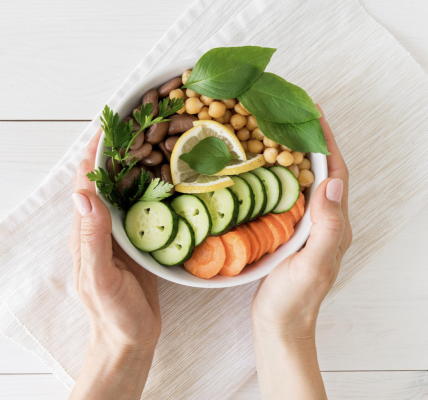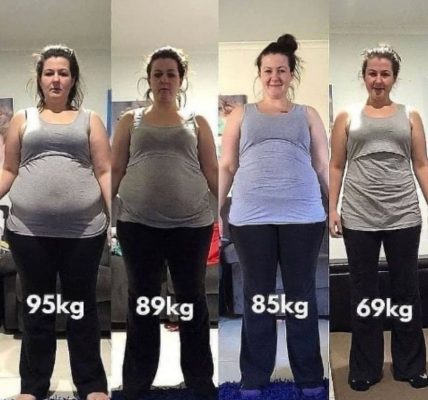Your heart beats around 100,000 times a day, pumping blood and delivering oxygen and nutrients to every cell in your body. It’s one of the hardest-working organs you have — yet heart disease remains the leading cause of death worldwide. While genetics play a role, your daily lifestyle choices, especially what you eat, can make or break your heart health.
The good news? You have control. By adopting a heart-healthy diet, you can significantly lower your risk of cardiovascular disease, improve your overall health, and even reverse some early signs of heart trouble.
The Link Between Diet and Heart Health
What you put on your plate has a direct impact on your heart. Diet influences your cholesterol levels, blood pressure, inflammation, and body weight — all key factors in heart health. The right foods can:
- Lower LDL (bad) cholesterol and increase HDL (good) cholesterol.
- Reduce blood pressure and improve circulation.
- Decrease inflammation, which is linked to atherosclerosis (hardening of the arteries).
- Maintain a healthy weight, reducing the strain on your heart.
On the flip side, a diet high in processed foods, unhealthy fats, and excess sugar can lead to plaque buildup in your arteries, high blood pressure, and an increased risk of heart attacks and strokes.
Top Heart-Healthy Foods
Let’s take a closer look at the foods that love your heart back:
- Leafy Greens
Spinach, kale, arugula, and broccoli are packed with vitamins, minerals, and antioxidants. They’re also high in dietary nitrates, which help reduce blood pressure and improve arterial function.
Tip: Add a handful of greens to your smoothie or sauté them with garlic and olive oil as a side dish. - Fatty Fish
Salmon, mackerel, sardines, and tuna are rich in omega-3 fatty acids, which lower triglycerides, reduce inflammation, and help prevent arrhythmias (irregular heartbeats).
Tip: Aim to eat two servings of fatty fish per week. Not a fan of fish? Consider a high-quality fish oil supplement. - Berries
Blueberries, strawberries, raspberries, and blackberries are loaded with antioxidants like anthocyanins, which protect against oxidative stress and reduce inflammation.
Tip: Add berries to your oatmeal, yogurt, or salads for a heart-healthy boost. - Nuts and Seeds
Almonds, walnuts, flaxseeds, and chia seeds are excellent sources of healthy fats, fiber, and plant-based omega-3s. They help lower LDL cholesterol and reduce inflammation.
Tip: Snack on a handful of nuts or sprinkle seeds over your cereal or smoothie. - Whole Grains
Oats, quinoa, brown rice, and whole wheat are rich in fiber, which helps lower cholesterol and stabilize blood sugar levels.
Tip: Swap refined grains like white bread and pasta for whole-grain alternatives. - Avocados
This creamy fruit is a powerhouse of monounsaturated fats, which are linked to lower LDL cholesterol and a reduced risk of heart disease.
Tip: Use avocado as a spread on toast or add slices to salads and sandwiches. - Dark Chocolate (in Moderation)
Dark chocolate (70% cocoa or higher) contains flavonoids, which improve blood flow and reduce blood pressure.
Tip: Enjoy a small square of dark chocolate as an occasional treat — just be mindful of added sugars.
Foods to Limit for Heart Health
While some foods nourish your heart, others can harm it. Here’s what to watch out for:
- Processed Meats
Bacon, sausage, hot dogs, and deli meats are high in saturated fats, sodium, and preservatives.
Why it’s harmful: These increase blood pressure and cholesterol, contributing to heart disease. - Sugary Beverages
Sodas, energy drinks, and even some fruit juices contain excessive amounts of sugar.
Why it’s harmful: High sugar intake can lead to obesity, insulin resistance, and inflammation. - Trans Fats
Found in many fried and packaged foods, trans fats raise LDL cholesterol and lower HDL cholesterol.
Why it’s harmful: They significantly increase the risk of heart disease and stroke. - Excessive Salt
Processed foods, canned soups, and fast foods are often loaded with salt.
Why it’s harmful: High sodium intake raises blood pressure, increasing the risk of heart attacks and strokes.
Building a Heart-Healthy Meal Plan
Here’s a simple framework for creating meals that support heart health:
Breakfast:
- Oatmeal topped with chia seeds, berries, and a drizzle of almond butter
- Whole-grain toast with avocado and a side of leafy greens
Lunch:
- Grilled salmon or tofu over a quinoa salad with mixed vegetables and olive oil dressing
- Lentil soup with a side of whole-grain bread
Dinner:
- Baked chicken or chickpea stir-fry with broccoli, carrots, and brown rice
- A hearty vegetable stew with beans and leafy greens
Snacks:
- A handful of unsalted nuts
- Sliced cucumber and carrots with hummus
- A small piece of dark chocolate
Lifestyle Changes Beyond Diet
While nutrition is a cornerstone of heart health, other lifestyle factors also play a role:
- Exercise Regularly: Aim for at least 150 minutes of moderate aerobic activity per week.
- Manage Stress: Chronic stress can increase blood pressure and inflammation. Try mindfulness, meditation, or yoga.
- Quit Smoking: Smoking damages blood vessels and significantly increases the risk of heart disease.
- Limit Alcohol: Excessive alcohol consumption can raise blood pressure and contribute to heart problems.
Final Thought
Your heart is the engine of your body, working tirelessly to keep you alive and thriving. By making conscious choices in the kitchen, you can protect this vital organ and set yourself up for a longer, healthier life.
Start small — swap processed snacks for fresh fruits, choose whole grains over refined ones, and add more heart-friendly fats to your meals. Over time, these small changes will add up, leading to a stronger, healthier heart.








